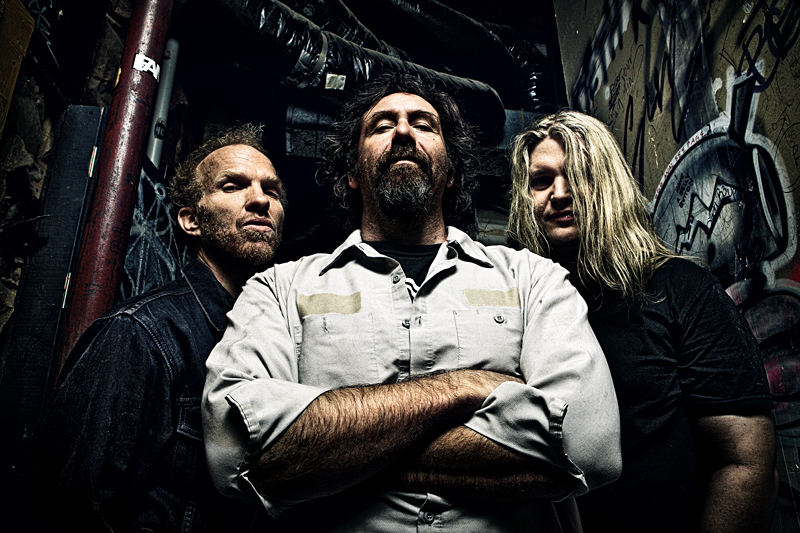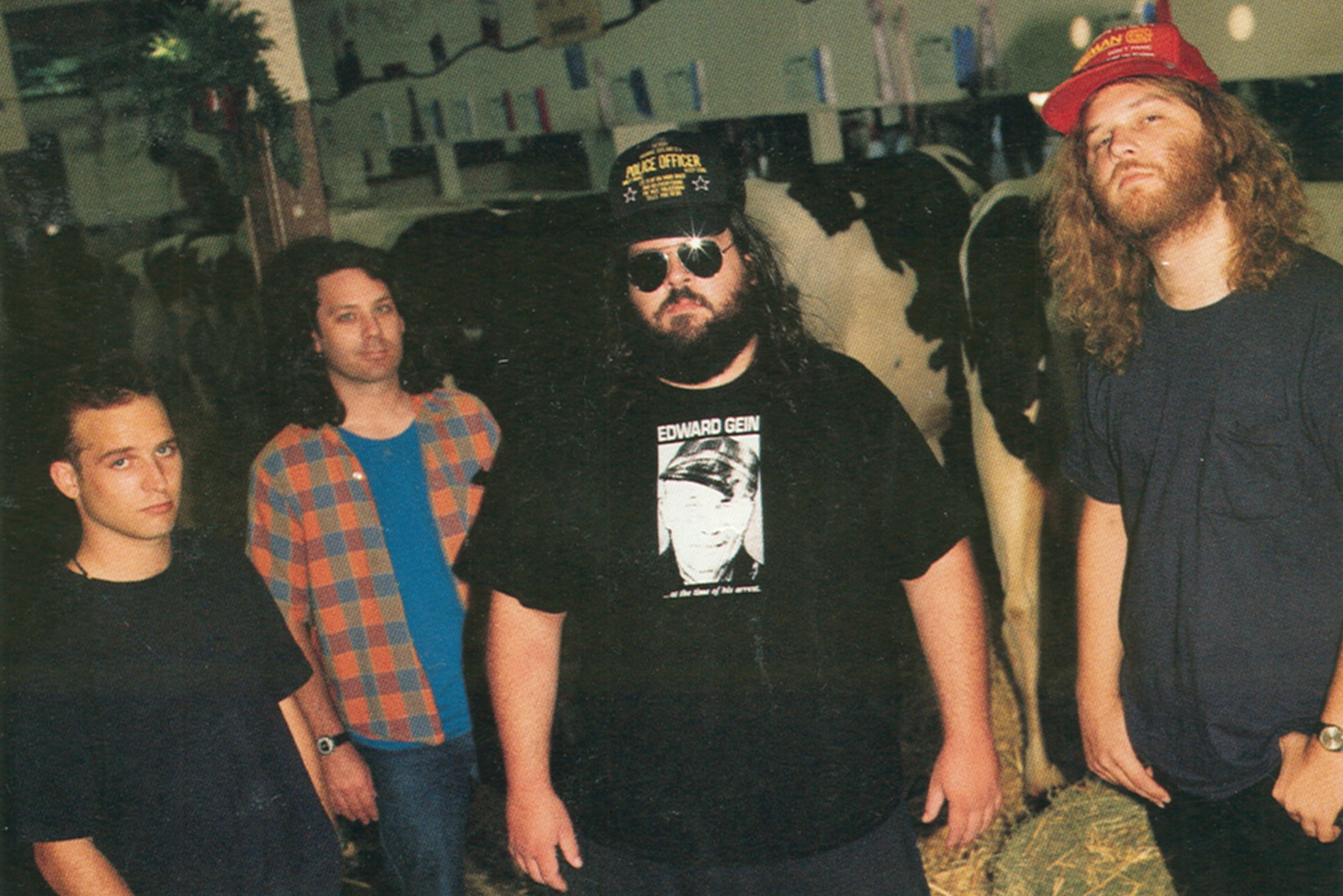Few bands have the longevity of Corrosion of Conformity, who formed in Raleigh, N.C., in 1982 and who, but for only a few brief periods, have been at it ever since. One of the first to blend punk and metal sounds, they remain an influential force in heavy music. 2012 was a busy year for the band members, who released their self-titled eighth album in February and re-released their long-out-of-print first LP, Eye for an Eye, this month. For the latest edition of Tell Me About That Album, I chatted with Mike Dean, the band’s longtime bassist, about making that first record, their early days, and being an elder statesman of metal.
SW: How did the recording of Eye for an Eye originally come about?
We had heard about some people with this studio, who, at the time, seemed really ancient to us. They might have been 38 or something. And they had a recording studio, which was basically in this guy’s family room. It was a tall order in those days to have your own recording studio. You had to have a 2-inch tape machine, which was the perfect combination of electronic and mechanical to make it prohibitive to maintain.
What was the scene in North Carolina like in 1984? Did you see yourself more on the hardcore side, or did you think of yourselves as a metal band?
All the heavy-metal stuff to us was big hair and tight pants and dressing up in lamé Spandex, which we weren’t really feeling. We were going up to Washington, D.C., going to hardcore shows, being influenced by Void and the Bad Brains. Black Flag would come through town, and that was the be-all end-all, seeing them.
Did you play with any of those bands during that era?
All of ’em. Everybody that came through after a certain point. We played with the Circle Jerks at the Wilson Center in D.C., a big ol’ hardcore show. We played with Black Flag in California in 1985. That’s more where we were coming from. Part of our approach, even going back as far as Eye for an Eye, was reveling in the slower parts. Even just a slow introduction was enough to set people off and say that you were an imposter and into heavy metal. It was very rewarding to incite those people.
How does the album hold up for you?
I’m proud of it within the context of it being our first effort. It’s a little cringeworthy here and there, and there’s some power that comes through, but it’s like the band hadn’t really gelled. It was good enough at the time that it was the vehicle for us to go on tour. And it was acclaimed at the time within the hardcore scene, and even some of the heavy-metal people who were into the faster bands like Venom and Motörhead took notice of it. It was the beginning of what was unfortunately called “crossover.” It was the planting of that seed and an interesting point, and there are a couple of songs on there that really kick ass for sure.
Do you feel like an elder statesman now? Do younger bands tell you that you were influential to their musical upbringing?
You get a little bit of people saying, “Yeah, I heard your stuff when I was 5 years old.” And that’s cool. That means something, especially if it’s someone whose work I admire. It’s gratifying, but I think it’s a tactical mistake thinking about those things for too long.








